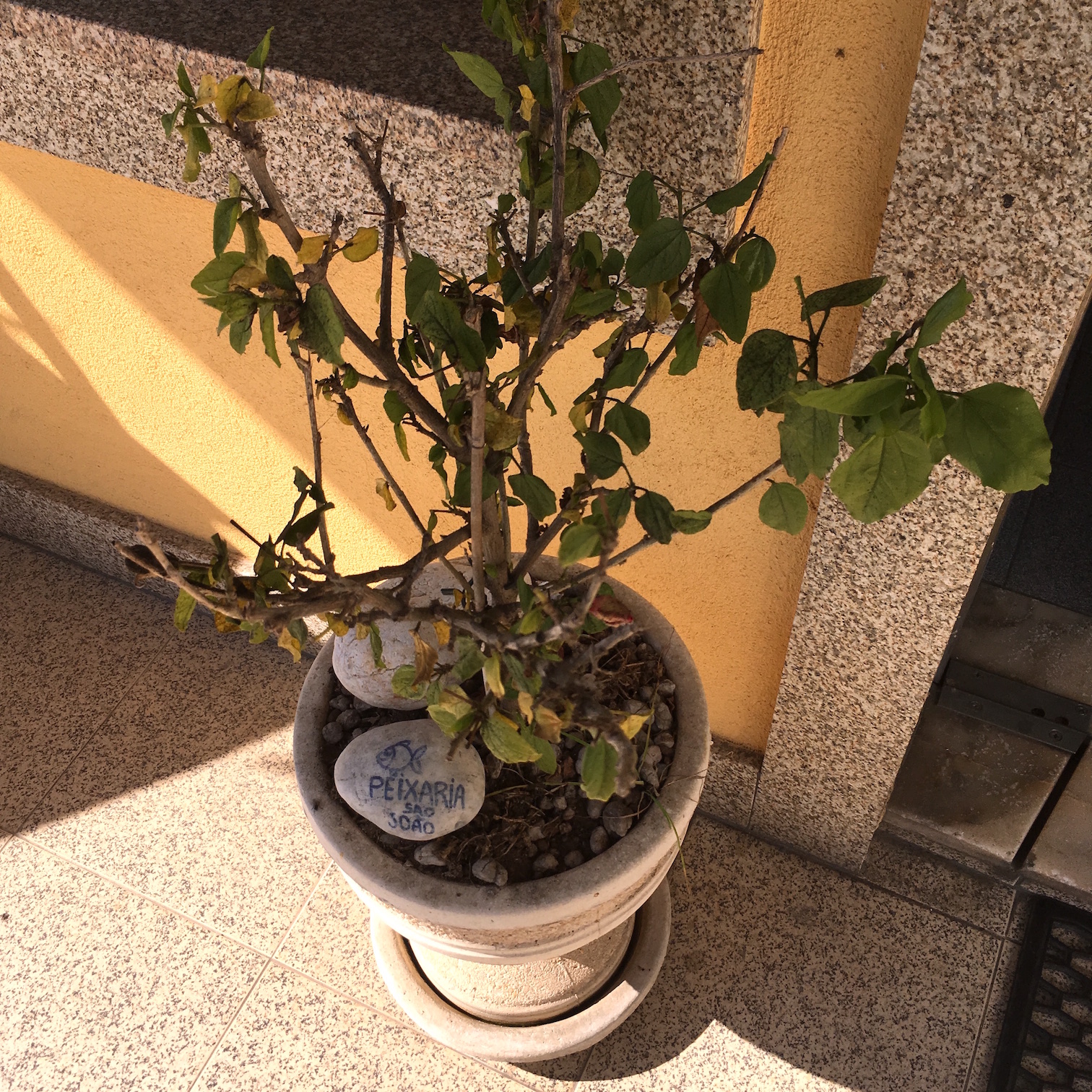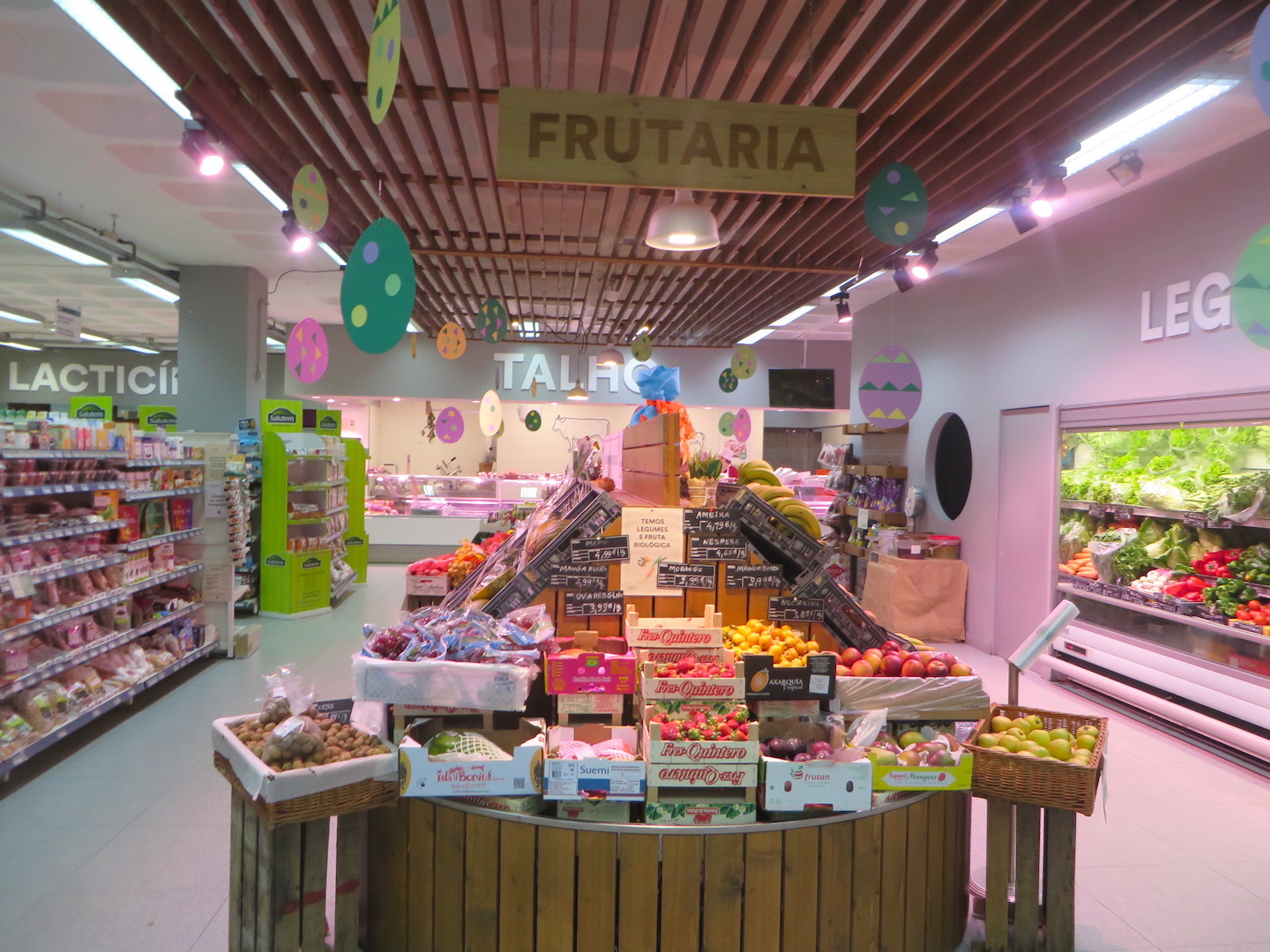Things that grow in the north of Portugal, to name a few are, kiwis, lemons, oranges, avocados, cherries, plums, melons and figs. The latter are so tasty, that there are simply no words to describe them. It was in Portugal, that we first ate them whole, together with their skins, just raw and fresh.. straight from the tree, sliced on our breads with butter, in salads, jams, cakes and compotes.
Things that do not grow in Portugal, and that were fairly important to us were: small cucumbers so you could make pickles, parsnip and we also struggled to find sauerkraut. We managed to order, all this online, usually in time for Christmas and Easter.
Portuguese people love to buy their fruit and vegetables at their weekly markets and they also visit their local shops. We had our small supermercado, located just 20 meters away. We liked to go there and buy anything but food, such as napkins, tea towels, tablecloth, baby nappies, gas lighter, the original 'healthy' light bulbs, and most of all beautiful Portuguese plates, which once saved our Christmas Eve dinner. Portuguese pottery is very durable and well made, with beautiful hand drawn (usually blue) patterns.
It was pure luck to actually find them, under a pile of other important goods, that accumulated quite a dust during the years. Yes, don't be surprised if you dig out something vintage. Much of the stock is not returned but kept, until it sells, which seems like a good idea, don't you think? Not only it saves the earth from frequent production and stock replenishment but you can find something unique, often handmade. We visited our local shop few times a week, because all people working there were so nice. We loved to pop in to check out on any new Portuguese table linens, tea towels and just to say hello.
One of the things you should learn in Portugal, is patience. The 'speedy service' is not how things are here. Not only you will actually never get one, but you will also miss out on all the fun; and the fun is joining in the conversation on various subjects. Of course, the queue does move..., but bear in mind, local life in Portugal is slow and that means popping in to the local shop if only for a chat is customary.
Next door to the food and accessories shop was 'Frutaria' - small, family-run, green grocer. Sylvie, French/Portuguese, was born and raised in Paris, which she now left together with her family, in search of a more peaceful life. Even though her shop was not organic, she would point to all the fruit and veg that were picked in her mother-in-law's garden - they were the pesticide-free, natural growing ones.
Our village, also had local services, such as fridge and tumble drier repair shop and 3 village bars, frequented mostly by local men and occasionally by pilgrims, walking the famous Camino.
Outside of the village, in the center of Esposende, was Jaju - a medium size supermarket that stocked a bit of everything. With some healthy options, including raw organic snacks, drinks and some beauty products, Jaju was quite conveniently located for both locals and tourists at Av. Valentim Ribeiro.

Once the shop owner starts treating you as a local, they will share with you the best day to buy fish as well as their catch of the day. The fish was really fresh, caught locally, not far from the shore, in the Atlantic Ocean. We would always sprinkle it with herbs, steam it and serve along with other veggies.





Post a Comment